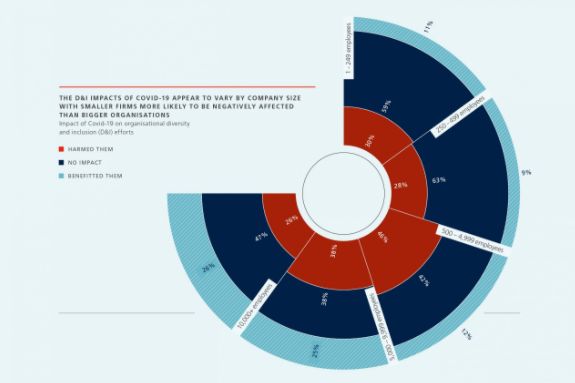Diversity and inclusion has been impacted in different ways by the coronavirus pandemic. This article provides case studies as illustration.
Innovation launch pad
Research conducted for The Word reveals that 33 per cent of businesses claim the coronavirus pandemic has harmed their diversity and inclusion activity, with 30 per cent suggesting it will make it harder to enact and push through D&I initiatives. But the experience of the pandemic differs hugely between businesses of varying sizes and in different countries around the world, outlined in our case studies featuring a startup, small to medium-sized enterprise (SME), and large organisation in Portugal, Singapore and the United States, respectively.
For example, the D&I efforts of US-based energy provider DTE Energy, employing 10,400 people, are flourishing as a result of the pandemic. This aligns with our research findings, which suggest the D&I efforts of larger firms are more likely to have benefited as a result of the COVID-19 crisis compared to smaller organisations, with 26 per cent of respondents from firms with 10,000-plus employees seeing this positive impact. Meanwhile, the pandemic has made life especially difficult for Portugal-based social technology startup SPEAK, which aims to support social integration by connecting local residents with newcomers through language and cultural exchange programmes: a tall order in this new online world.
Such challenges are also echoed in our research, which found 29 per cent of respondents from firms with fewer than 500 employees believe COVID-19 has harmed their D&I initiatives. For others, the pandemic has presented an opportunity to embrace innovation and rethink core practices. Such is the case at Singapore-based Vanda Electrics, whose chief executive Larissa Tan attributes the firm's ongoing survival and success to its innovative and diverse approach to talent management, proving D&I can be a valuable tool in helping businesses to survive and thrive in the current economic climate.

To view the full article please click here.
The content of this article is intended to provide a general guide to the subject matter. Specialist advice should be sought about your specific circumstances.
